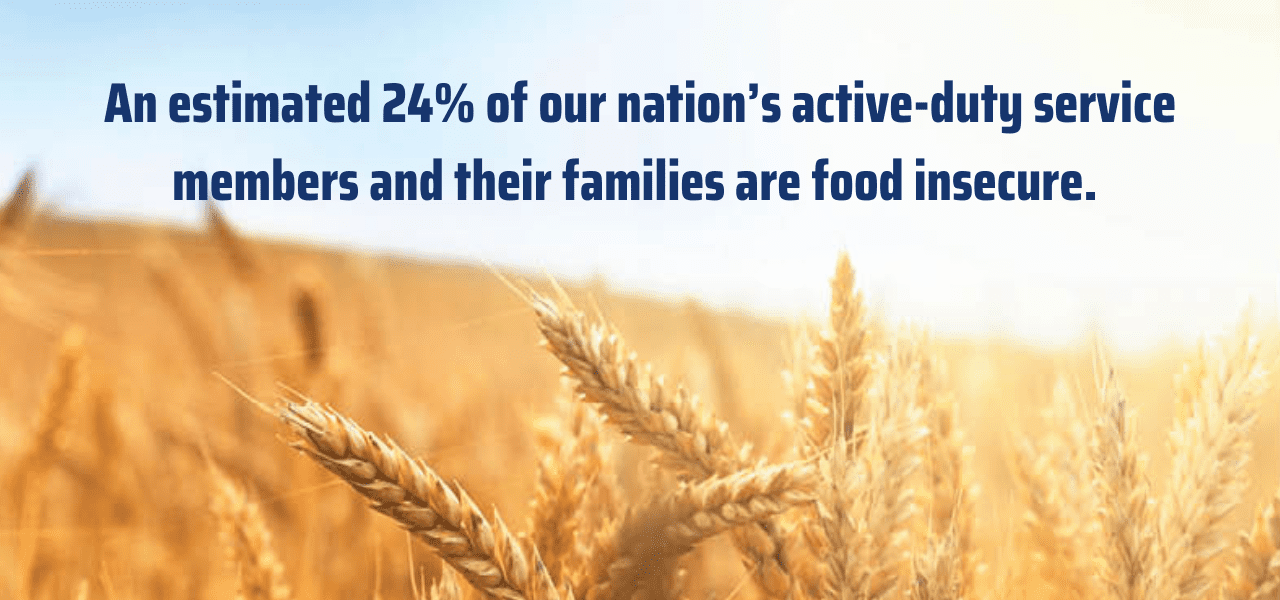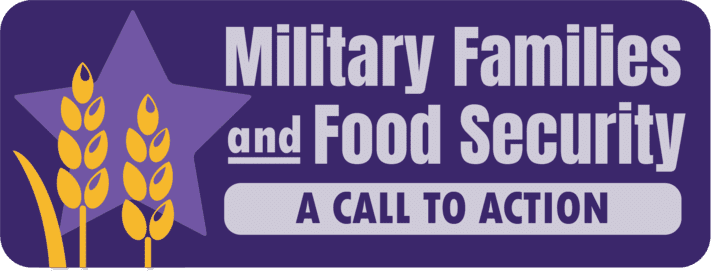Military Families and Food Security: A Call to Action
About This Series
Join OneOp’s 2023 Military Family Readiness Academy as we mobilize family service professionals at federal, state, and local levels to focus on expanding food security for our military family population.

The Importance of Food Security
Within the military population, we see a confluence of factors impacting food security, such as spouse unemployment, frequency of moves, and enlisted service member pay grade and rank. A rise in economic insecurity has also contributed to increased food insecurity in vulnerable populations. Service providers have the ability to expand food security in the communities they support. Join the 2023 Academy series to explore food insecurity’s impact on military families, and discover how to apply your knowledge to the communities you serve!
2023 Academy Series Offerings:
-
Self-paced course for all providers in any field
- Now available: Advancing Food Security for Military Families
-
On-demand events with experts
-
Engagement opportunities
- LinkedIn Group | Military Families and Food Security – A Space for Providers
- Create a food security benefits resource guide for your professional toolkit
-
Continuing Education credits
- Certified in Family and Consumer Sciences (CFCS): This program has been submitted for 1.5 CE credits from the American Association for Family and Consumer Sciences (AAFCS) for CFCS.
- Certified Nutrition and Wellness Educator (CNWE): This program has been submitted for 1.5 CE credits from the American Association for Family and Consumer Sciences (AAFCS) for CNWE.
- Case Manager: This program has been submitted to the Commission for Case Manager Certification for approval to provide board-certified case managers with 1.5 clock hours.
- Board Certified Patient Advocates: This program has been pre-approved by the Patient Advocate Certification Board (PACB) to provide continuing education credit to Board Certified Patient Advocates (BCPA). The program has been approved for a total of 1.5 CE contact hours, of which 0.0 are in the area of Ethics.
- Social Work, LPC, LMFT: This program has been submitted for 1.5 CEs from the University of Texas at Austin, Steve Hicks School of Social Work.
- Accredited Financial Counselors (AFC): This program has been submitted for approval of 1.5 CEUs from the Association for Financial Counseling and Planning Education (AFCPE) for AFCs.
- Certified Personal Finance Counselors (CPFC): This program has been submitted for 1.5 CEs from FinCert for CPFCs.
- Certified Family Life Educators (CFLE): This program has been approved for 1.5 CEs from National Council on Family Relations (NCFR) for CFLEs.
- Registered Dietitian Nutritionists (RDN) and Nutrition Dietetics Technicians, Registered (NDTR): This program has been submitted for 1.5 CPEU from the Commission on Dietetic Registration for RDNs and NDTRs.
Click here to watch videos from Department of Defense and USDA leadership about this important initiative.
Webinars in This Series
Advancing Food Security for Military Families
Service providers and Extension educators play an integral part in helping military families become more food secure. Discover how you and other professionals can work together to expand food security for military families in your communities with this timely course.
Supportive Programs and Benefits to Expand Food Security for Military Families
This 90-minute event uncovers how various food security programs and benefits may intersect and align. This panel discussion equips service providers with the knowledge needed to make the best possible recommendations and referrals for the families they serve.
Building Networks to Alleviate Food Insecurity
This interactive session guides participants through the process of creating a food security “benefits resource guide” tailored to the location and populations they serve. Facilitators will lead activities designed to help family service providers immediately implement food security knowledge in their local communities.

Food Security in Focus – Complimentary Programming
Take advantage of OneOp’s Food Security in Focus collection, offering live and on-demand webinars related to food security. Food insecurity adversely impacts racial/ethnic minority populations, lower-income populations, and rural and remote populations.
This programming perfectly complements the Academy series, focusing on expanding food security for families and mobilizing family service professionals to work together at federal, state, and local levels.
Programming covers topics such as:
- Increasing children’s fruit and vegetable exposure
- Reducing food waste
- Helping your clients inflation-proof their budget
- Discussing the connection between Medicaid, food security, and well-being
- And more!















